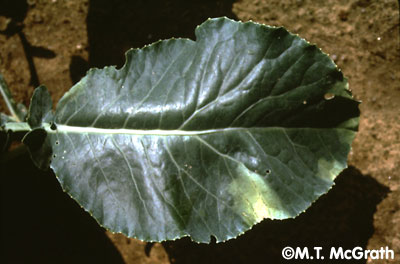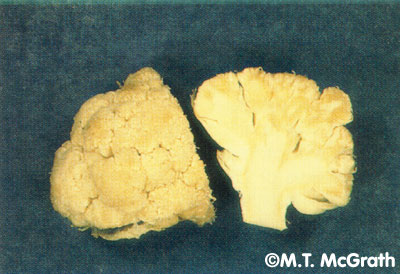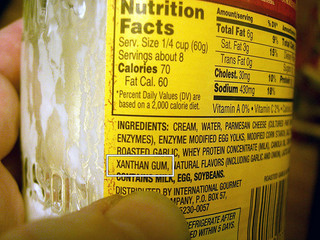Quit "gummying" around.. here are some true facts


This is the amazing picture which is also located at the top of the
screen as the main template for this website. This is truly an
incredible picture catching Xanthomonas campestris
physically being sprayed out of freshly cut veins of an infected
birdsrape mustard (Brassica
rapa L.). This picture not only shows the mechanism
that this pathogenic bacterium uses for transmission but also the
magnitude of how invasive this disease really is. Truly
fascinating. Thank you Paul Bachi, University of Kentucky
Research and Education Center, for taking this amazing photo!

 There
are many different kinds of disease that cause destruction of the
vegetable crops in the crucifer family besides just Xanthomonas
campestris. For instance, a very similar Gram-negative
pathogenic bacterium known as the peppery leaf spot disease,
Pseudomonas syringae, expresses symptoms that resemble
those of black rot.
There
are many different kinds of disease that cause destruction of the
vegetable crops in the crucifer family besides just Xanthomonas
campestris. For instance, a very similar Gram-negative
pathogenic bacterium known as the peppery leaf spot disease,
Pseudomonas syringae, expresses symptoms that resemble
those of black rot.

Xanthomonas campestris is identified as a Gram-negative,
yellow-pigmented bacterium. Its single strait rod measures in
around 0.4-0.7 micrometer wide and 0.7-1.8 micrometers long.
Xcc tend to grow colonies that are usually yellow, smooth
and viscid.

Xanthan gum comes into the food industry at a expensive rate,
compared to cornstarch at $0.89 per pound, xanthan gum is around $7
per pound. There is a huge contraversy on why it is so highly
prices but that is explained through the mechanical expenses that
are needed to derive xanthan gum from Xanthomonas campestris
and produce a purified additive sample. Also to further backup
and encourage the use of xanthan gum, individual use of xanthan gum
is very minimal. The amount of xanthan gum needed for personal
dishes and preparation is very little. So keep in mind that "a
little goes a long way" when thinking of xanthan gum.


Not only is infection of black rot seen within the leaves but there
is also detection of black rot moving into the curds of the
crucifers. When the curds are infected they become a
yellowish-brown color.

___________________________________________________________________________________________________

What an amazing journey this microscopic pathogenic bacteria has
gone through to become the thriving organisms that it is.
Trying to grasp the concept that this deadly plant pathogen is
actually a health food additive used throughout our food industry is
at times difficult, so make sure to check out the
real experts to get even more
clarification!
-- HOME -- REFERENCES -- CONTACT ME -- MULTIPLE ORGANISMS --
